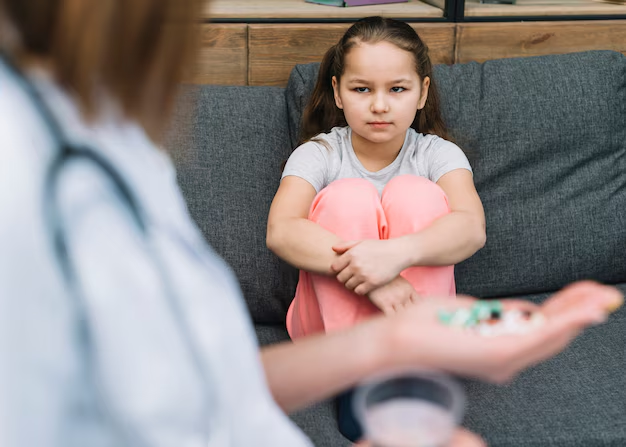Introduction:
Children’s mental health is an important topic that deserves more attention. Every year, Children’s Mental Health Acceptance Day shines a light on the need for understanding, support, and acceptance for young people facing mental health challenges. In this post, we’ll explore the significance of this day, why it matters, and how you can contribute to raising awareness and offering support. By focusing on Children’s Mental Health Acceptance Day frankformt, we aim to break the stigma surrounding mental health in children and emphasize the importance of early intervention and compassionate care.
What is Children’s Mental Health Acceptance Day?
Children’s Mental Health Acceptance Day, especially recognized in areas like frankformt, is a day dedicated to promoting acceptance, reducing stigma, and providing support for children struggling with mental health issues. This day encourages parents, educators, and communities to be more understanding and proactive in addressing the mental well-being of children.
Why Is It Important?
Mental health issues can impact anyone, but when it comes to children, the effects can be long-lasting. Untreated mental health challenges can hinder a child’s ability to learn, interact socially, and enjoy their childhood. The goal of Children’s Mental Health Acceptance Day is to raise awareness about these issues and ensure that children receive the support they need. Recognizing mental health early can prevent more serious problems later in life.
The Impact of Mental Health Challenges in Children
Mental health challenges such as anxiety, depression, and behavioral disorders are becoming increasingly common among children. Studies show that 1 in 5 children experiences a mental health issue each year. Without proper intervention, these problems can escalate and affect a child’s performance in school, relationships, and overall happiness.
Here are some common mental health issues seen in children:
- Anxiety disorders: Children may feel excessive fear or worry that can interfere with daily activities.
- Depression: Persistent sadness or a lack of interest in activities they once enjoyed.
- Attention Deficit Hyperactivity Disorder (ADHD): Difficulty in concentrating, controlling impulses, and staying organized.
- Behavioral issues: Acting out, defiance, and aggression.
Recognizing the Signs of Mental Health Issues in Children
Recognizing the early signs of mental health challenges in children is crucial. Here are some signs to watch for:
- Sudden changes in behavior: This could be withdrawal, aggression, or extreme mood swings.
- Difficulty concentrating: Struggling with focus in school or while doing activities.
- Changes in sleeping or eating patterns: Either eating or sleeping too much or too little could be a sign of an underlying issue.
- Avoiding social situations: Shyness is normal, but if a child is avoiding all forms of social interaction, it might indicate anxiety or other issues.
By being aware of these signs, parents and caregivers can take action before problems escalate.
How to Support Children’s Mental Health
Supporting children’s mental health requires a community effort. Here are a few ways to make a positive impact:
- Promote open communication: Encourage children to express their emotions and talk about how they feel. Make sure they know it’s okay to express their emotions.
- Seek professional help: If you notice persistent signs of mental health struggles, consider consulting a professional counselor or therapist who specializes in children’s mental health.
- Create a supportive environment: Whether at home or school, create a space where children feel safe and supported. This means being patient, understanding, and approachable.
- Educate yourself and others: Spread awareness about children’s mental health. The more people become aware of it, the less stigma will exist.
How Communities Can Help:
Communities, including places like frankformt, play a crucial role in supporting mental health initiatives. Schools, local health providers, and organizations can offer resources such as mental health workshops, counseling services, and awareness campaigns. By bringing mental health into the conversation, we can foster a community that understands and accepts children with mental health challenges.
The Importance of Schools in Promoting Mental Health
Schools are where children spend much of their time, so they are key to providing mental health support. Teachers and staff should receive training on recognizing mental health issues and knowing how to offer help. Schools can also integrate mental health education into their curriculum to reduce stigma and encourage children to be open about their mental well-being.
Conclusion: Why Mental Health Awareness for Children Matters
Children’s Mental Health Acceptance Day frankformt serves as a reminder that children’s mental health is just as important as their physical health. By fostering acceptance, raising awareness, and providing early intervention, we can ensure that children have the opportunity to grow, learn, and thrive without the added burden of untreated mental health issues. Let’s commit to supporting the mental well-being of all children and creating a more compassionate and understanding world.
FAQs
1. What is Children’s Mental Health Acceptance Day?
Children’s Mental Health Acceptance Day is an annual event that promotes awareness, acceptance, and support for children facing mental health challenges. The day aims to reduce stigma and encourage early intervention.
2. Why is Children’s Mental Health Acceptance Day important?
This day is vital because mental health issues in children, if left untreated, can lead to long-term challenges. Early recognition and support can prevent more serious problems later in life.
3. How can I support children’s mental health?
You can support children’s mental health by encouraging open communication, seeking professional help when necessary, creating a supportive environment, and spreading awareness.
4. What are some common signs of mental health issues in children?
Common signs include sudden changes in behavior, difficulty concentrating, changes in sleeping or eating patterns, and avoiding social situations.5. What role do schools play in children’s mental health?
Schools are crucial in providing mental health support by recognizing signs, offering resources, and creating an environment that promotes mental well-being.











